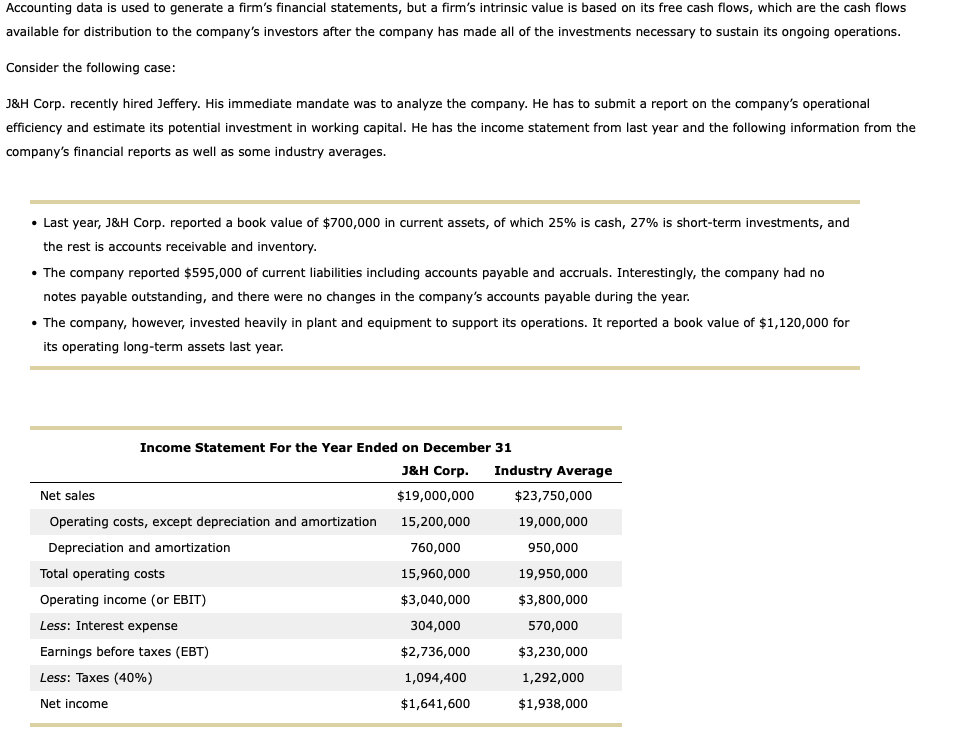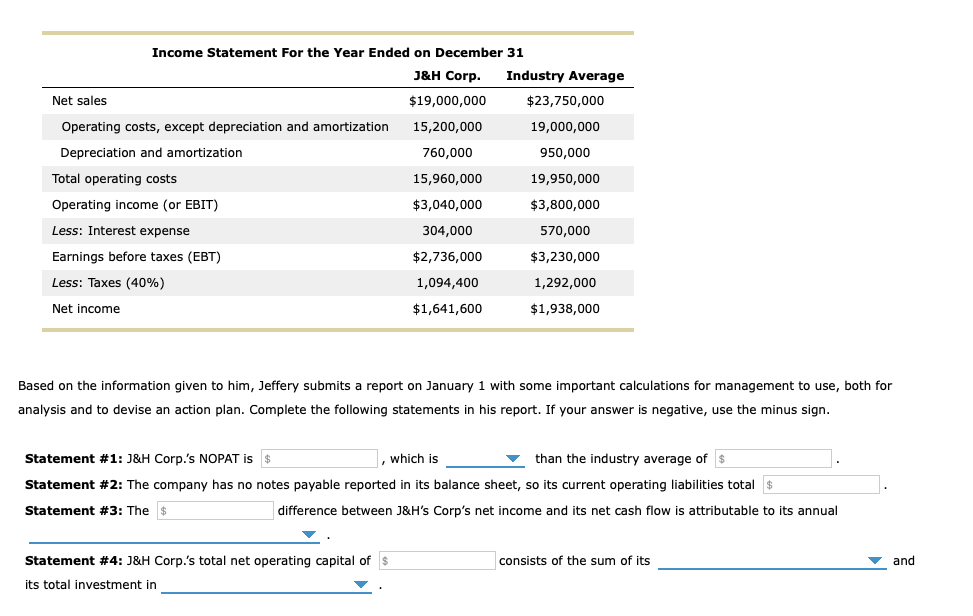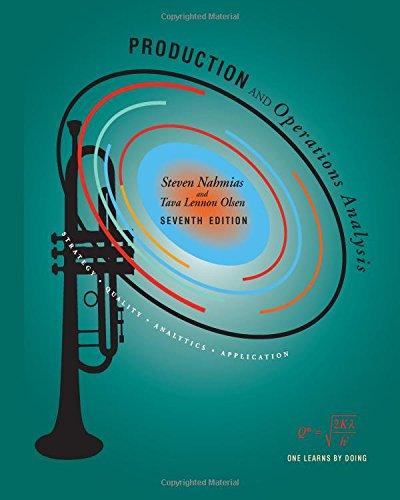Answered step by step
Verified Expert Solution
Question
1 Approved Answer
Statement 1 options: less or greater Statement 3 options: operating cost, interest expense, depreciation & amortization expense Statement 4 part 1 options: net operating working

 Statement 1 options: less or greater
Statement 1 options: less or greater
Statement 3 options: operating cost, interest expense, depreciation & amortization expense
Statement 4 part 1 options: net operating working capital, net income after taxes, net working capital
Statement 4 part 2 options: current assets, cash balance, operating long-term assets
Explain how to do this and the math involved, not in Excel please.
Accounting data is used to generate a firm's financial statements, but a firm's intrinsic value is based on its free cash flows, which are the cash flows available for distribution to the company's investors after the company has made all of the investments necessary to sustain its ongoing operations. Consider the following case: J&H Corp. recently hired Jeffery. His immediate mandate was to analyze the company. He has to submit report on the company's operational efficiency and estimate its potential investment in working capital. He has the income statement from last year and the following information from the company's financial reports as well as some industry averages. Last year, J&H Corp. reported a book value of $700,000 in current assets, of which 25% is cash, 27% is short-term investments, and the rest is accounts receivable and inventory. The company reported $595,000 of current liabilities including accounts payable and accruals. Interestingly, the company had no notes payable outstanding, and there were no changes in the company's accounts payable during the year. The company, however, invested heavily in plant and equipment to support its operations. It reported a book value of $1,120,000 for its operating long-term assets last year. Income Statement For the Year Ended on December 31 J&H Corp. Industry Average Net sales $19,000,000 $23,750,000 Operating costs, except depreciation and amortization 15,200,000 19,000,000 Depreciation and amortization 760,000 950,000 Total operating costs 15,960,000 19,950,000 Operating income (or EBIT) $3,040,000 $3,800,000 Less: Interest expense 304,000 570,000 Earnings before taxes (EBT) $2,736,000 $3,230,000 Less: Taxes (40%) 1,094,400 1,292,000 Net income $1,641,600 $1,938,000 Income Statement For the Year Ended on December 31 J&H Corp. Industry Average Net sales $19,000,000 $23,750,000 Operating costs, except depreciation and amortization 15,200,000 19,000,000 Depreciation and amortization 760,000 950,000 Total operating costs 15,960,000 19,950,000 Operating income (or EBIT) $3,040,000 $3,800,000 Less: Interest expense 304,000 570,000 Earnings before taxes (EBT) $2,736,000 $3,230,000 Less: Taxes (40%) 1,094,400 1,292,000 Net income $1,641,600 $1,938,000 Based on the information given to him, Jeffery submits a report on January 1 with some important calculations for management to use, both for analysis and to devise an action plan. Complete the following statements in his report. If your answer is negative, use the minus sign. Statement #1: J&H Corp.'s NOPAT is $ , which is than the industry average of $ Statement #2: The company has no notes payable reported in its balance sheet, so its current operating liabilities total $ Statement #3: The $ difference between J&H's Corp's net income and its net cash flow is attributable to its annual consists of the sum of its and Statement #4: J&H Corp.'s total net operating capital of $ its total investment inStep by Step Solution
There are 3 Steps involved in it
Step: 1

Get Instant Access to Expert-Tailored Solutions
See step-by-step solutions with expert insights and AI powered tools for academic success
Step: 2

Step: 3

Ace Your Homework with AI
Get the answers you need in no time with our AI-driven, step-by-step assistance
Get Started


